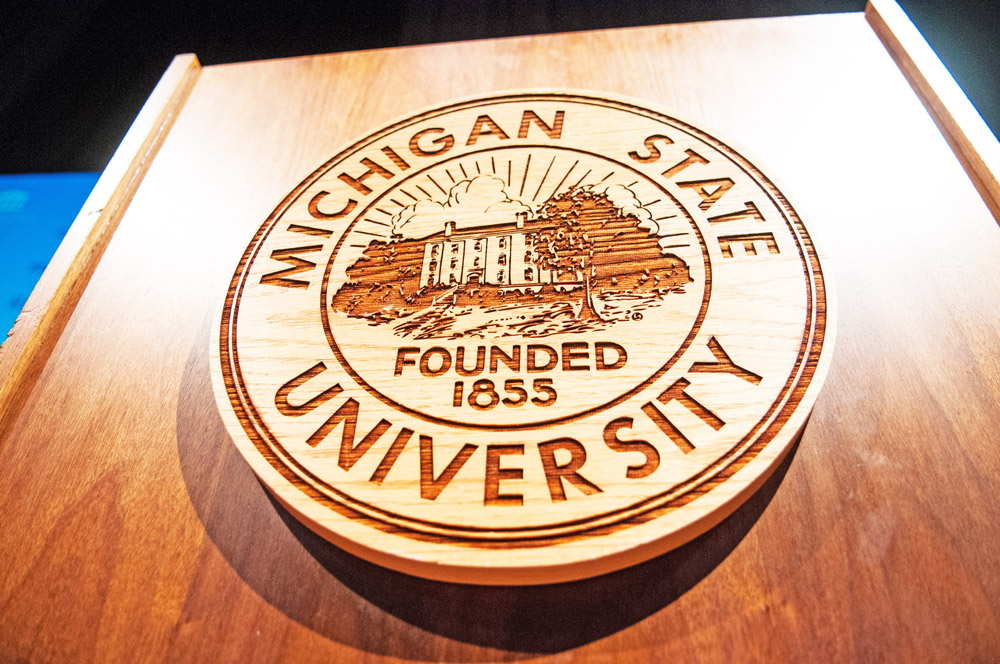The MSU IT Council met on June 1. Below are the high-level topic summaries from the meeting.
MSU IT’s Top 15 Projects
Barb Dawson, Assistant Vice President of IT Strategy, reported on the “Top 15” technology projects as reported by the MSU IT Project Management Office. She explained that several criteria are used to classify a project as “Top 15” including if the project is high profile for MSU, if the project is funded, and if it is an innovation project and/or it supports the MSU Bolder IT vision to Strengthen, Align, and Innovate.
Some of the “Top 15” projects include Data Center Approval Planning, Electronic Health Record Implementation, Enterprise Architecture Strategy, Student Success Predictive Analytics, Residence Hall Wi-Fi, Security Program, Research Administration System, Enterprise Stewardship of IT, and Constituent Relationship Management Platform.
Read more about technology projects on the Bolder IT website.
Electronic Information Technology Purchasing Process
Rob McCurdy, Assistant Vice President and Chief Information Security Officer, explained the realigned purchasing process for electronic information technology (EIT). This new process helps ensure MSU meets security and web accessibility requirements. MSU Purchasing facilitates accessibility and security reviews on behalf of MSU IT. These reviews minimize security and data risks and maintain accessibility compliance as part of the purchasing process for new products and renewals. This streamlines purchasing by incorporating reviews at the beginning of the procurement process.
The reviews are intended to let the departments and colleges know about any potential accessibility and/or security issues associated with pending purchases so they can make educated decisions about the products they are purchasing. The target for turnaround of the evaluation is five days with attempts to tighten the process by utilizing previously reviewed vendors and sharing vendor information with other Big Ten universities.
Retroactive and non-purchased products and services can also be evaluated by contacting ithelp@msu.edu. In-house written software can also be reviewed by following the same process. Priority will be given to software that accesses or uses confidential data.
Student Success progress
Brendan Guenther, Director for Academic Technology, provided a status report on the Student Success Dashboard. Registrar’s Office Web Forms Security Administrators can provide access to the system on the Office of the Registrar Online Forms Menu.
The Student Success Dashboard platform will be implemented in two phases. Phase 1 will include about half the advising entities across the MSU Neighborhoods and academic colleges, and Phase 2 will include the other half of those advising entities. Phase 1 units are being trained on the dashboard this summer. Phase 2 will be trained during the fall 2016 semester.
Separately, Phase 1 and Phase 2 college advising units will migrate to the Spartan Mail (Microsoft Outlook/Campus Exchange) email, calendaring, and scheduling solution between June 1 and August 1. By migrating all advisors to the same platform, undergraduate students will have a consistent experience, regardless of who their advisor is or which advising office they use. After migrations, the Student Success Dashboard is integrated with advisors’ Outlook calendars. The dashboard is where students will go to schedule an advising appointment.
Office 365 and Storage progress
Step-by-step migration instructions are being developed for six key migration paths (Exchange, Legacy Mail, Gmail, etc.). Five people in the College of Natural Science have had email migrated to Office 365 as a pilot. Currently, it is taking about three hours to complete the entire process for each mailbox. The MSU Counseling Center, as the first department being migrated, has had seven mailboxes moved successfully. Units can move themselves but they are strongly encouraged to contact MSU IT to get started. Units that do migrate themselves are then encouraged to assist the next unit through the migration process.
The Storage – Future Strategy Work Group is gathering information across campus about storage needs. Anyone that is interested in joining the group should contact Matt Stehouwer or one of the members of the work group.
About the IT Council
The MSU IT Council serves as a primary IT advisory body. Membership is made up of IT leaders appointed by the senior deans and directors from each of the degree‐granting colleges, core academic units, major academic support units, and other major business units.
The MSU community is encouraged to seek out their IT Council representative or visit the IT Council website for more information on topics of interest.



